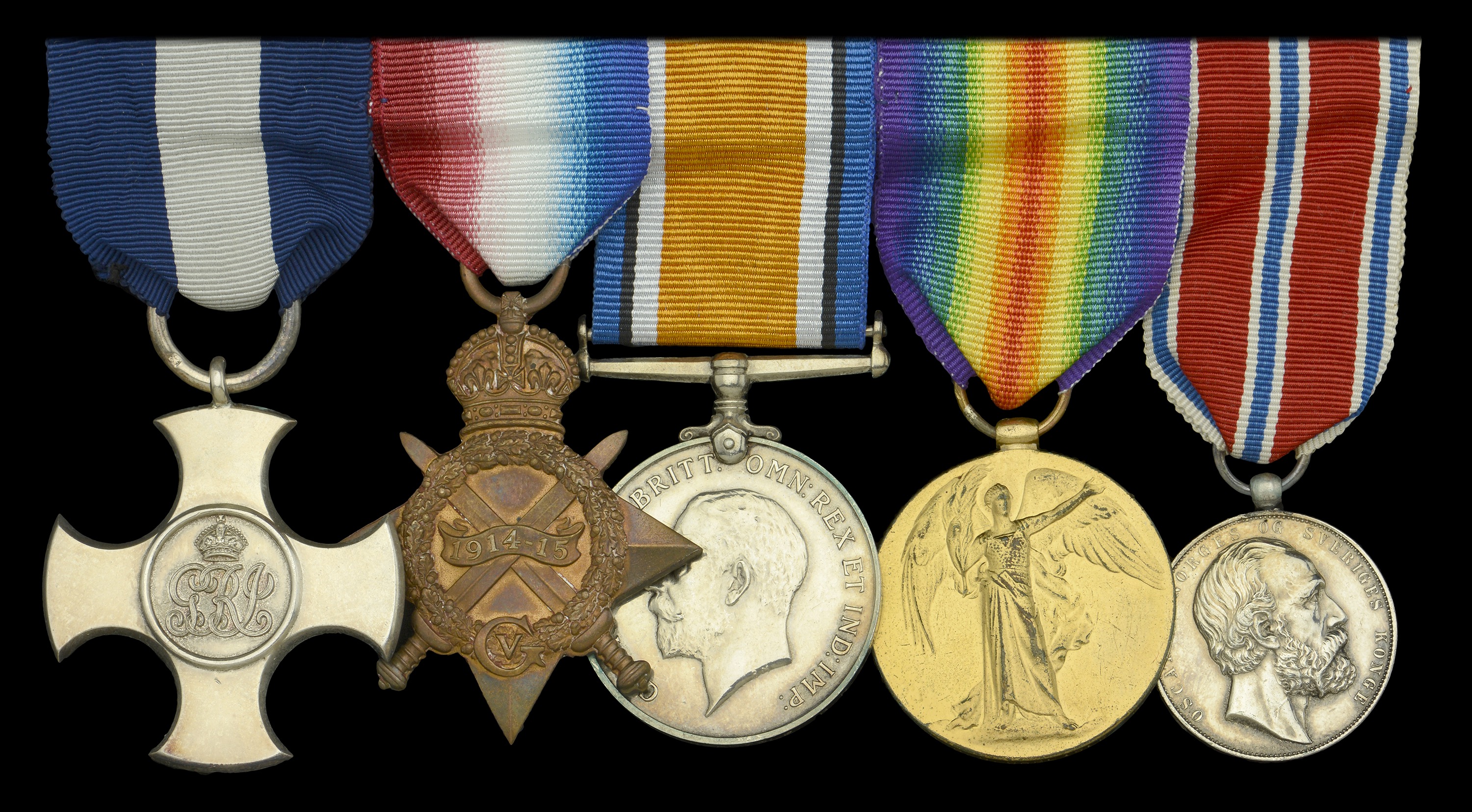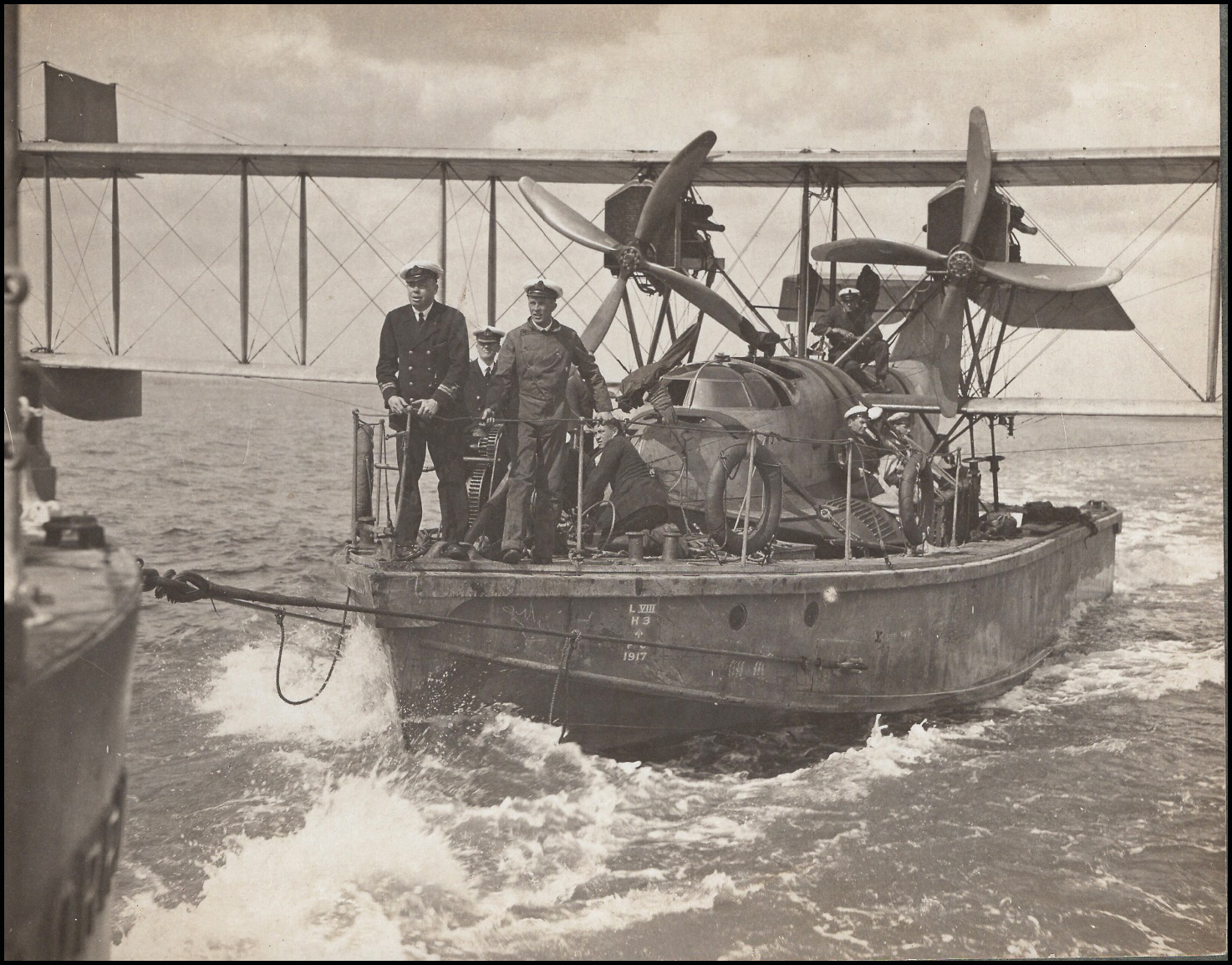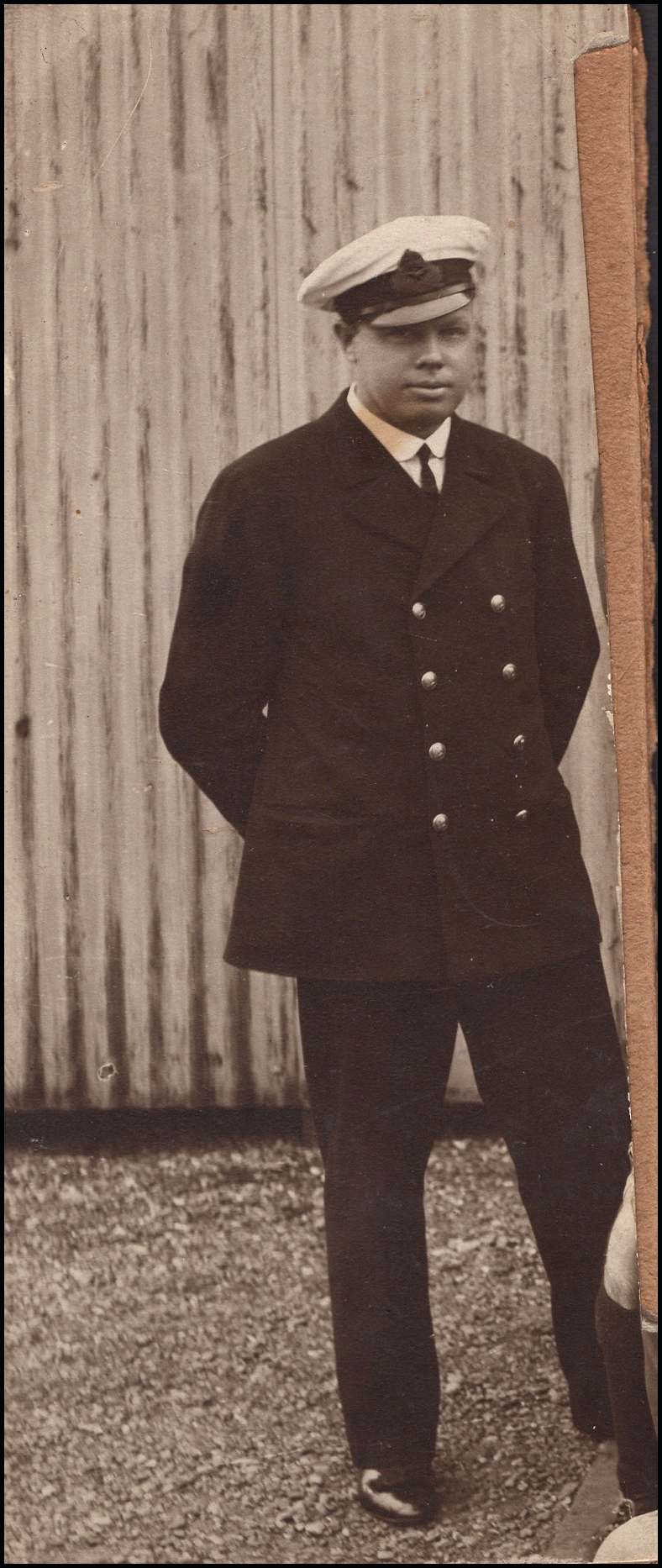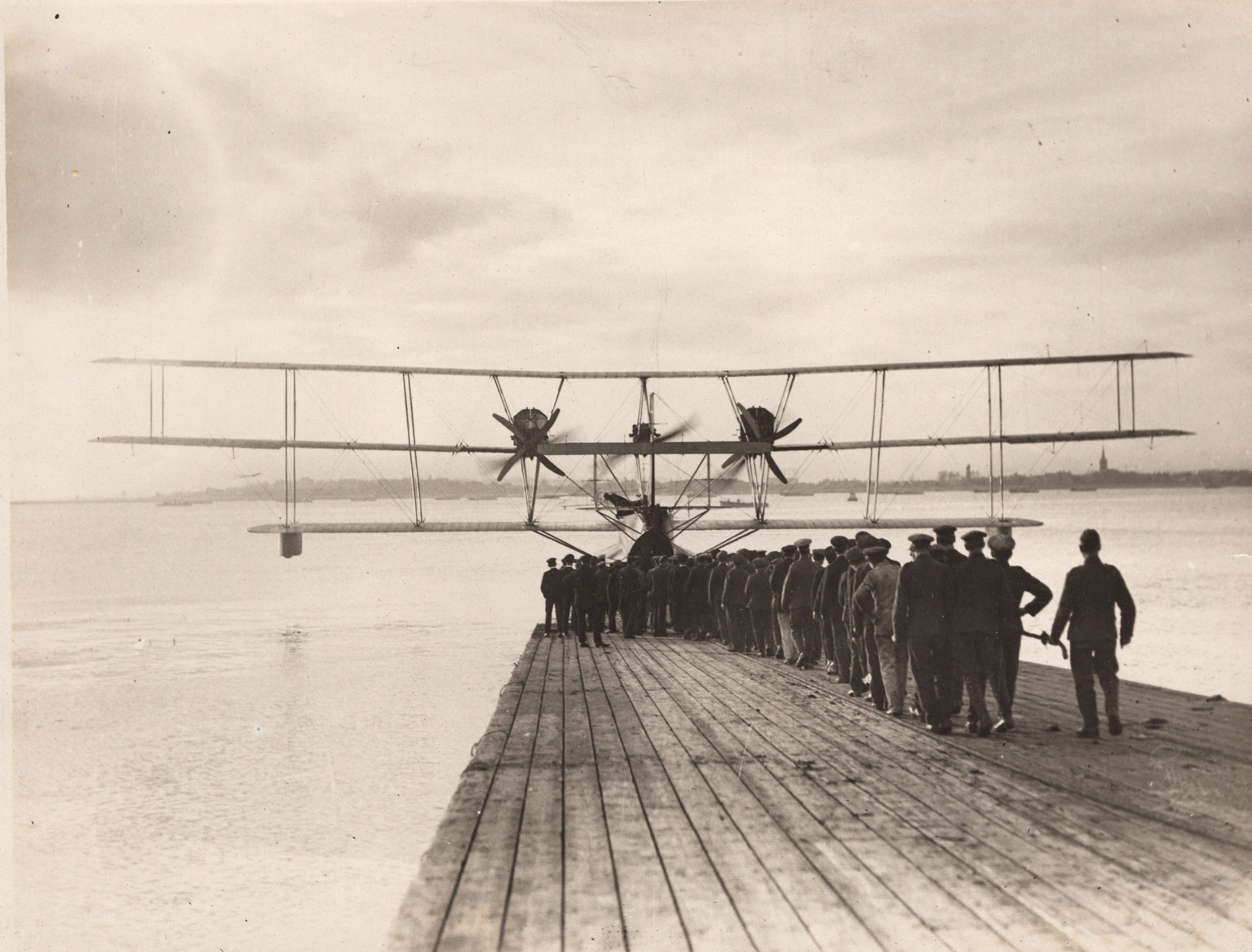The scarce Great War D.S.C. group of five awarded to Acting Flight Commander C. C. ‘Jumbo’ Carlisle, Royal Naval Air Service, late Merchant Navy, one of the more unusual characters of ‘The Spider Web’ Sea-plane Flight at Felixstowe Distinguished Service Cross, G.V.R., the reverse hallmarked London 1917; 1914-15 Star (Flt. S. Lt. C. C. Carlisle, R.N.A.S.); British War and Victory Medals (Flt. Cr. C. C. Carlisle. R.N.A.S.); Denmark, Medal for Heroic Deeds, silver, mounted as worn, good very fine (5) £1,400-£1,800 --- Importation Duty This lot is subject to importation duty of 5% on the hammer price unless exported outside the UK --- --- Provenance: Butterfield’s Auction, U.S.A., June 2000. D.S.C. London Gazette 1 May 1918: ‘For zeal and devotion to duty between 1 July and 31 December 1917.’ The original recommendation states: ‘This officer has served on this station [R.N.A.S. Felixstowe] since August 1915 and has been consistent in carrying out his varied duties in a thorough and capable manner. I consider his influence on this station to have been highly valuable to the Service and most deserving of recognition.’ Cyril Campbell Carlisle was born in Liverpool on 14 March 1880, and originally served in the Merchant Navy, having been apprenticed to Nicholson & McGill in February 1896. He was awarded the Norwegian Medal for Heroic Deeds in respect of the rescue of the crew of the barque Varuna in 1902 and he gained his 1st Mate’s Certificate in the following year. His subsequent Master’s Certificate was obtained at Victoria, British Columbia, Canada in August 1906, but on joining the Royal Naval Air Service in May 1915, he listed his current employment as that of a manager of a petroleum company in West Africa. Having undertaken pilot training at R.N.A.S. Chingford - seemingly without success, one report stating ‘he will never improve as a pilot’ - Carlisle was posted to R.N.A.S. Felixstowe for duty as ‘senior watch keeper and motor boats’ in January 1916. Subsequently described as ‘an exceptional officer with great ability to command,’ he was advanced to Flight Lieutenant in October 1916 and given charge of ‘seaplane lighters and motor boats.’ And apart from his detachment to Houton Bay ‘in connection with the America Seaplane’ in April 1917, he appears to have remained likewise employed until the war’s end. Having been advanced to Acting Flight Commander in March 1918, he transferred to the Royal Air Force in the rank of Captain and served in 70 Wing and in France. Carlisle emigrated to Canada in the 1920s but died back in the U.K. at Brighton, Sussex, in July 1969. A much liked and unusual character, some of Cyril Carlisle’s antics are recounted in The Spider Web, The Romance of a Flying-Boat War Flight, by ‘P.I.X.’, published in 1919, an amusing account of R.N.A.S. Felixstowe during the war, but, as the following extracts might illustrate, ‘Jumbo’ had an important part to play: ‘C. C. Carlisle, the Old Man of the Sea, or Jumbo, as he was called, because of his appearance and methods on the football field, was an institution on the station. He was in charge of the working party which did all the pulley-hauley work, and of the piratical crews of the motor-boats who looked after the flying- boats when they were on the water of the harbour. He had all sorts of fascinating model sheerlegs and derricks for training his men, and on occasion headed the salvage crew or the wrecking gang. He was a merchant service officer who had spent thirteen years at sea, part of the time fetching oil from Patagonia, and it was rumoured that he had also fetched from that salubrious spot his picturesque language. Some weekend trippers to Felixstowe, standing outside the barbed wire enclosing the beach, after watching and hearing, with eyes popping out and ears flapping, the unconscious Jumbo handling a working party bringing In the Porte Baby, wrote an anonymous letter to the Commanding Officer complaining of the earache, and adding, “it was Sunday too." This effusion was signed " A Disgusted Visitor." It was quite evident that the writer had never been with our armies in Flanders.’ ‘The new year [1918] opened badly. On the 2nd, in a thirty-knot wind, Gordon took off the harbour in a new type boat. As he rose from the water a petrol pipe failed, and not having height to turn he landed her outside down wind. She touched the water at a rate of knots, her bottom split open, and she sank in shallow water. Before she sank Gordon and his crew were taken off by a motor-boat. The Old Man of the Sea organised a salvage party. Jumbo boiled about in the sheds setting alight his trusty henchmen, and collected an amazing assortment of wire cables, ropes, balks of timber, flares, anchors, and what else I know not. The station tug Grampus, the steam hissing from her safety-valve through the zeal of her fireman (for the usual unexciting job of the crew was to bring bread and beef from Shotley, and this was an adventure), took the O.M.O.T.S.'s pet, the flat- bottomed salvage barge, in tow. They took it out and anchored it to windward of the wreck, but nothing further could be done until low water, which was at nine o'clock. In the darkness of the night, in the shadow of the sheds, Jumbo collected his piratical crew and packed them into the Grampus. I asked to be taken along, and we all shoved out through the guardships into the open sea. We could not get near the barge owing to the shallow water, and Jumbo forsook us, climbing with five of his satellites into a small dinghy, which, perilously overloaded, bobbed away over the heavy sea into the darkness. A long wait. The tug was rolling and tossing in the steep waves. A drizzling rain was falling. There were no shore lights, and the night was pitch-black. And then there was a glare of light in the distance, Jumbo had lit one of the acetylene flares on the stern of the salvage barge. The glare increased, and presently a light came bobbing over the water towards the tug, - it was a lantern in the bow of the dinghy. I climbed across and was ferried to the scene of activity. It was a weird sight. Five hissing acetylene flares surrounded the wreck with a fierce glow. Intense darkness all around, and in the brilliant pool of light a section of tossing waves, the flying-boat with her lower wings showing on the surface of the water, and the oilskin-clad men working on her. The wind was dying down, and as the tide fell the force of the waves was broken by the shoals over which they had already passed and by the barge. Jumbo took a short wire rope, with a wire hawser attached midway between the two ends, and had it worked down from the bow beneath the flying-boat. The ends were made fast to the engine bearer-struts, the men tying the knots under water, as the tide was now rising. Other men had made and fitted a wire sling for each engine, and to these two lines were made fast and taken to the barge. The slack in the wire hawser and the two lines was hauled in, and as the incoming tide raised the barge the flying-boat was lifted clear of the bottom. As soon as the water was deep enough Jumbo had the anchor heaved up and two motor-boats took the barge in tow. The flying-boat, supported on the surface by its lower wings moving through the water, followed after. It was towed by the two lines attached to the engines, the wire bridle under the bow preventing it nose-diving. The Old Man of the Sea processioned into the harbour in triumph. First the Grampus, then the two motor-boats, then the barge, and finally the flying-boat....















